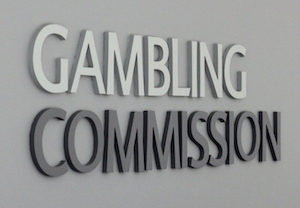The UK Gambling Commission has released the first annual report of its Gambling Survey for Great Britain (GSGB), which confirms that lotteries remain the core gambling products in the country.

The mean number of activities for those who had participated in gambling in the past four weeks was 2.2 activities, with the National Lottery the most commonly reported activity (31 per cent).
Sixteen per cent of people who had participated in gambling reported buying tickets for other charity lotteries, while 13 per cent said they bought scratch cards.
Overall, 48 per cent of participants aged 18 and over participated in any form of gambling in the past four weeks, with gambling participation at 27 per cent without those who only participated in lottery draws.
The push-to-web survey collected data from 9,804 adults aged 18 and over living in Great Britain. The first annual report follows – and consolidates – the publication of two waves of GSGB data released by the UKGC.
The UK regulator reiterated its recent advice that the estimates presented in the report are “not directly comparable with results from prior gambling or health surveys, and such comparisons should not be used to assess trends over time.”
“The GSGB data outlined in this report represents the first year of a new baseline, against which future changes can be compared,” it said.
The survey is subject to a margin of error, the UKGC said, adding it has a 95 per cent confidence interval.
For the first time, the Commission collected data on the consequences of someone else gambling.
Nearly half (47.9 per cent) of adults reported someone close to them gambled, with relationship breakdown (3.5 per cent) being the most commonly reported severe consequence. The GSGB also reveals data on the experience of suicidal ideation or attempts by participants, and whether this was related to gambling.
Overall, 11.4 per cent of all participants reported that they had either thought about taking their own life or had attempted to do so.
These estimates, the UKGC noted, are higher than those found in the most recent Adult Psychiatric Morbidity Survey of 2014, where the estimations were that 5.4 per cent had thought about suicide and 0.7 per cent had attempted suicide in the past 12 months.
The UKGC said the AMPS 2014 data was based on face-to-face interviews which “will result in lower reports than when self-completion methods are used.”
“Therefore, whilst the GSGB data on suicidality may be overstated, comparable data from APMS may be understated,” the regulator said.
“Because there is uncertainty as to which estimate is closer to the truth, data on gambling-related suicidality is presented for those who reported past-year thoughts about taking their own life or attempts only.”
Tim Miller, executive director of research and policy at the Gambling Commission, said: “One of our aims as a regulator is to ensure we gather the best possible evidence on gambling – and today’s publication is the next significant step forward in our journey on creating a robust source of evidence for gambling in Great Britain.
“Data in this report represents the first year of a new baseline, against which future changes can be compared and as such will prove invaluable in deepening further our understanding of gambling across the country.”
Professor Patrick Sturgis, professor of Quantitative Social Science at the London School of Economics, who has assisted the Gambling Commission with its GSGB, said: “The new design of the Gambling Survey for Great Britain will significantly enhance the evidence base on patterns and trends in gambling behaviour.
“With an annual sample size of 20,000 individual interviews across the nations and regions of Great Britain, the survey will provide researchers and policy makers with fine-grained and timely data across a broad range of key indicators.
“Using a push-to-web mixed mode design and random probability sampling from the Postcode Address File, the survey implements state-of-the-art methodology to a very high standard.”

